Share
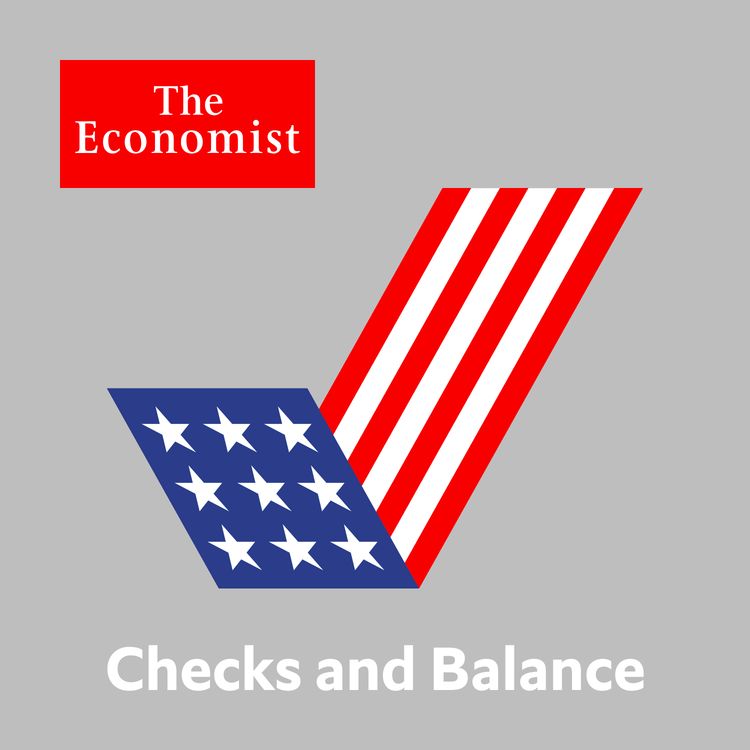
Checks and Balance from The Economist
Checks and Balance: Out of control
•
The United States is home to the world’s most renowned disease-fighting agency, the CDC. Americans might have expected its scientists to coordinate a testing programme, public health messaging and supplies to keep the pandemic under control. That hasn’t happened. America faces a secondary surge of coronavirus cases not seen anywhere else in the world. Can America beat covid-19?
This episode includes excerpts from CDC Director Dr Robert Redfield’s interview with the Economist Asks podcast.
John Prideaux, The Economist’s US editor, hosts with Charlotte Howard, New York bureau chief, and Washington correspondent Jon Fasman.
For access to The Economist’s print, digital and audio editions subscribe: economist.com/2020electionpod
More episodes
View all episodes
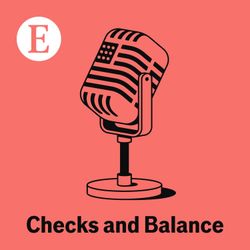
Reasons to be hopeful: overdose deaths decline
50:57|Over a million Americans have died from overdoses since the turn of the century. Now, at last, the crisis might be getting better–data suggest that overdose deaths peaked last year. The turn seems to be rapid and widespread. What’s behind the change–and what’s next for the opioid epidemic?Charlotte Howard hosts with Stevie Hertz and Adam O’Neal. They’re joined by The Economist’s Daniel Knowles and Keith Humphreys, drug policy advisor to George W Bush and Barack Obama.Transcripts of our podcasts are available via economist.com/podcasts Listen to what matters most, from global politics and business to science and technology—subscribe to Economist Podcasts+ For more information about how to access Economist Podcasts+, please visit our FAQs page or watch our video explaining how to link your account.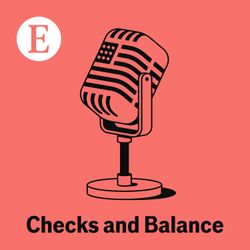
How gaga is MAHA?: RFK Jr’s plans
48:08|The prospect of an anti-vaxxer and conspiracy theorist heading up American health policy understandably fills many Americans with horror. But Robert F. Kennedy junior, Donald Trump’s pick for secretary of health, advocates some policies that liberals have long favoured. How damaging would his appointment be? John Prideaux hosts with Charlotte Howard and Adam O’Neal. They’re joined by The Economist’s Sacha Nauta, and former CDC official William Dietz. This episode uses audio from The Liz Wheeler ShowTranscripts of our podcasts are available via economist.com/podcasts Listen to what matters most, from global politics and business to science and technology—subscribe to Economist Podcasts+ For more information about how to access Economist Podcasts+, please visit our FAQs page or watch our video explaining how to link your account.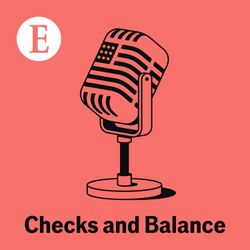
Of great import: Donald Trump’s tariffs
50:41|The president-elect has proposed blanket tariffs on goods from Canada, Mexico and China. Donald Trump says he wants America's neighbours to clamp down on drugs and migrant crossings and protect American interests. Some foreign countries hope the tariffs are just a negotiating ploy. But how might they respond? And what would this all mean for American consumers?John Prideaux hosts with Charlotte Howard and Idrees Kahloon. They’re joined by Kathleen Claussen of Georgetown Law and The Economist’s Sarah Birke.Transcripts of our podcasts are available via economist.com/podcasts Listen to what matters most, from global politics and business to science and technology—subscribe to Economist Podcasts+ For more information about how to access Economist Podcasts+, please visit our FAQs page or watch our video explaining how to link your account.
The age of Donald Trump: a conversation with Peggy Noonan
36:47|Peggy Noonan has been a close observer of American politics for over forty years. She was a speechwriter for Ronald Reagan and George Bush, and since 2000 has written a Pulitzer Prize-winning column for the Wall Street Journal. As Donald Trump’s second term approaches she joins us to talk about Trump’s political antecedents, the decline of political rhetoric and why she still loves America. John Prideaux hosts with guest Peggy Noonan. Her latest book is “A Certain Idea of America”. Transcripts of our podcasts are available via economist.com/podcastsListen to what matters most, from global politics and business to science and technology—subscribe to Economist Podcasts+ For more information about how to access Economist Podcasts+, please visit our FAQs page or watch our video explaining how to link your account.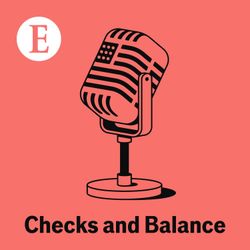
Donkey work: the Democratic autopsy
48:34|Democrats are trying to understand how they lost to Donald Trump—again. With two years, at least, shut out of federal power, the post-mortem analysis is in full swing. What now for the Democratic party? John Prideaux hosts with Charlotte Howard and Idrees Kahloon. They’re joined by political strategist Doug Sosnik and Congressman Chris Deluzio. Transcripts of our podcasts are available via economist.com/podcasts Listen to what matters most, from global politics and business to science and technology—subscribe to Economist Podcasts+ For more information about how to access Economist Podcasts+, please visit our FAQs page or watch our video explaining how to link your account.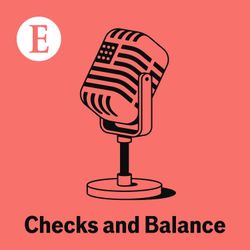
Transition state: Donald Trump’s nominations
52:03|The election is over, and the president-elect’s administration is starting to take shape. What do Donald Trump’s picks for key roles tell us about his second term?John Prideaux hosts with Charlotte Howard and Idrees Kahloon. They’re joined by The Economist’s Adam O’Neal and David Rennie. Runtime: 52 minsTranscripts of our podcasts are available via economist.com/podcasts Listen to what matters most, from global politics and business to science and technology—subscribe to Economist Podcasts+ For more information about how to access Economist Podcasts+, please visit our FAQs page or watch our video explaining how to link your account.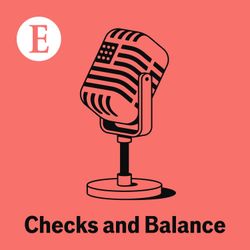
Trump that: the 2024 election
57:35|In a stunning victory Donald Trump comfortably defeated Kamala Harris. America’s 45th president will become its 47th. How did he do it?John Prideaux hosts with Charlotte Howard and Idrees Kahloon. They’re joined by The Economist’s Owen Winter, James Bennet and Adam O’Neal, as well as political scientists Lynn Vavreck and John Sides.Transcripts of our podcasts are available via economist.com/podcasts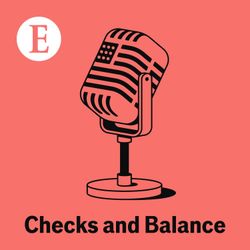
Election results: a brief message from John Prideaux
00:29|John Prideaux, Charlotte Howard and Idrees Kahloon are on today's edition of The Intelligence with their take on the election results so far. To listen, head to The Intelligence feed. Checks and Balance will be back on Friday with a full episode.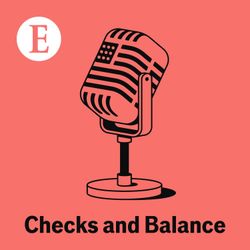
Endorsement time: our pick for president
51:12|Since 1980 The Economist has offered election endorsements in the spirit of helping readers work through what is always a choice between flawed candidates. We explain why if The Economist had a vote in the 2024 election, we would cast it for Kamala Harris.John Prideaux hosts with Charlotte Howard and Idrees Kahloon. They’re joined by The Economist’s editor-in-chief Zanny Minton Beddoes and Lexington columnist James Bennet. Runtime: 51 minTranscripts of our podcasts are available via economist.com/podcasts Listen to what matters most, from global politics and business to science and technology—subscribe to Economist Podcasts+ For more information about how to access Economist Podcasts+, please visit our FAQs page or watch our video explaining how to link your account.